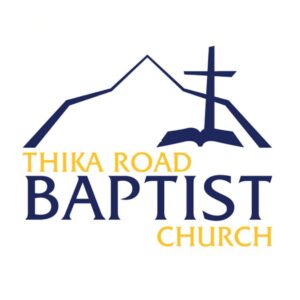The Kenyan High Court has stopped the Kenya Revenue Authority (KRA) from taxing tithes, offerings and donations to churches in the countries.

Justice David Majanja who presided over the case upheld a prior ruling by the Tax Appeals Tribunal which prevented the Kenya Revenue Authority (KRA) from collecting tax from Thika Road Baptist Church.
The Kenya Revenue Authority (KRA) stated that the church should pay 5.5 million Kenyan Shillings making it known that it; Thika Road Baptist Church, had been unable to provide a Tax Exemption certificate.
Although Churches in Kenya are exempted from paying taxes on tithes the Kenya Revenue Authority (KRA) however, insists that they must get the Tax Exemption certificate which is subject to specific conditions.
Read Also: Kenyan Food Tech Startup Kune Closes Operations
In the words of Justice David Majanja, “I, therefore, find and hold that since tithes, offering and freewill donations are not income chargeable with income tax, it was not necessary for the church to seek an exemption.”
This will be a huge break for churches which reportedly get hundreds of millions of Kenyan Shillings in tithes year on year. If the Kenya Revenue Authority (KRA) had won this case it would have resulted in it targeting the bigger and more established churches.
Read Also: Higher Data and Airtime Taxes Result In KRA Losing Billions
The Judge stated that the Kenya Revenue Authority (KRA) had not been able to prove that donations, offerings and tithes are profits and gains, rights permitted for use of property, employment or other forms of income recognized by the Income Tax Act (ITA).
Although churches in Kenya are required to file returns yearly, they are however exempt from a lot of taxes as provided for by Section 13 and paragraph 10 of the First Schedule of the Income Tax Act (ITA), as well as the Non-Governmental Organisations and Co-ordination Act.
Read Also: Introducing Safaricom and Visa’s M-Pesa GlobalPay Virtual Card
In Paragraph 10 of the First Schedule of the Income Tax Act (ITA) institutions, a body of persons or the irrevocable trust of a ‘public character’, are exempted from paying tax.
These include charities, trusts, churches and or entities created for the sole purposes of combating public distress, poverty or aiding the spread of education and or religion.
Thika Road Baptist Church took the matter to court when the Kenya Revenue Authority (KRA) accused the church in October of 2018 of not filing tax returns between 2015 and 2017.

The Kenya Revenue Authority (KRA) demanded for a total of 5.5 million Kenyan Shillings as income tax. Thika Road Baptist Church contested that demand stating that it is religious organization and registered under Section 10 of the Societies Act, for the advancement of the faith.
Thika Road Baptist Church made it known that it generates income from offerings and tithes and is not a business. The Kenya Revenue Authority (KRA) in response to the Thika Road Baptist Church stated that because the Church had no Tax Exemption Certificate that is valid, its claim would be rejected.
The case was then taken to the Tax Appeals Tribunal as the Thika Road Baptist Church maintained that the demand made by the Kenya Revenue Authority (KRA) was not fair due to the fact that its only sources of income are offerings and tithes which are both not classified as taxes. The Tax Appeals Tribunal ruled in favour of Thika Road Baptist Church stating that the Commissioner of domestic taxes made a mistake in taxing tithes.
Read Also: KRA Loses Court Case Against Betting Companies
The Tax Appeals Tribunal also made it known that a Tax Exemption Certificate was not mandatory as it only covers income that qualifies to be taxed under section 3(2) of the Income Tax Act (ITA).
The Kenya Revenue Authority (KRA) made it known to the High Court that it is mandatory for Thika Road Baptist Church to have a Tax Exemption Certificate for its income from donations and tithes to get exempted.
The Kenya Revenue Authority (KRA) added that the Tax Exemption Certificate does not get issued automatically and is subject to numerous conditions.

Justice David Majanja stated in the ruling that in order to reach a decision, the main thing is to determine once and for all whether or not donations and offerings are income that is taxable.
He however, agreed with the Tax Appeals Tribunal that voluntary donations, offerings and tithes to the churches and other religious organizations are not part of income tax which under the Income Tax Act (ITA), is chargeable.
Read Also: NMS Set To Carry Out Final Test Run at Green Park Terminus Today
In the words of Justice David Majanja, “I also agree that this type of income does not fall within section 3(2) of the ITA.”
The National Treasury in 2012 put churches in Kenya on notice that they will soon be taxed for commercial activities which give them an unfair advantage over other investors.
Read Also: KRA Loses 5.6 Billion Kenyan Shilling Case Against Coca-Cola Bottlers
This was based on the belief that a number of charitable organizations and churches were operating businesses which brought more money and freed them from relying too much on offerings and tithes from their members.
At the time the Kenyan government wanted churches in the country to differentiate what is charitable from commercial enterprises like buildings, matatus, hotels, and schools.
The decisions were however, not implemented because the government moved to maintain the tax exempt status of churches stating that their aid in the fight against corruption through their charitable actions.
For example, a number of hospitals and schools operated by churches in Kenya provide their services at rates which are subsidized with the aim of being beneficial to those in need.
How informative was this particular article? Are there any other news topics, categories, or How To topics, that you would like us to write on? Feel free to reach out to Nexbit KE in the comment section.


